#john britten
Explore tagged Tumblr posts
Text
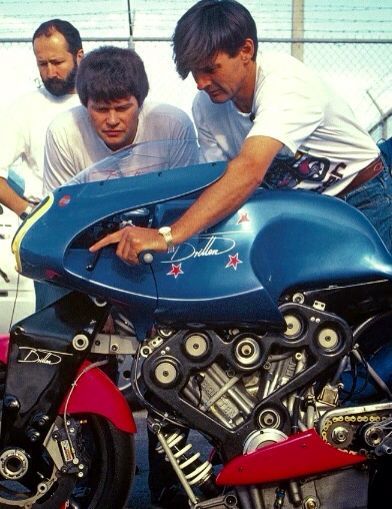
John Britten† // Britten V1000
#motorcycle#john britten#†#britten v1000#motolegends#sport bike#racing#motorsports#handbuilding#mechanic#designer#builder#built for speed#ride hard or go home#moto love#lifestyle
228 notes
·
View notes
Text





Kiwi Rebel. The Britten Racing Bike born here in New Zealand 🇳🇿
8 notes
·
View notes
Text
Stay: The Britten Stables, Christchurch
When I was looking for accommodation in Christchurch for a very special stay, I came across this spectacular place. I must admit, even though I had heard of John Britten, a famous motorcycle creator, and seen one of his bikes at Te Papa Museum in Wellington, I never realised that he also created a beautiful home for his family, which now hosts guests. I was quite excited to find out shortly…

View On WordPress
0 notes
Text
highlights of today
macca insisting that he's never known what the lyrics of one after 909 were about and geo + john looking at him incredulously
john insisting that he can't sing high: buddy you've been shredding your voice this whole day AND YOU'RE NOT SITTING UP STRAIGHT two fixable things
george so salty that Benjamin Britten would get to record in Paris and not The Beatles
#let it be#get back#george harrison#john lennon#benjamin britten#the beatles#one after 909#i've got a feeling#japage3#rudipost#3*
39 notes
·
View notes
Text
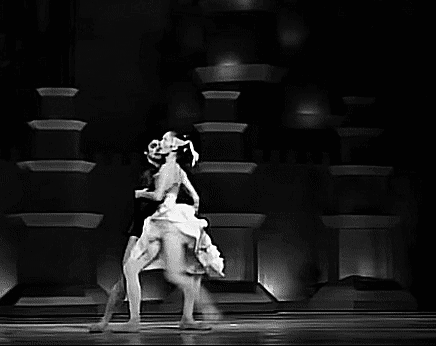
The Prince of the Pagodas - Darcey Bussell and Jonathan Cope (1989)
#ballet#the prince of the pagodas#darcey bussell#ballet gif#classical ballet#my gif#benjamin britten#kenneth macmillan#Jonathan cope#John Cranko#the royal ballet#royal opera house#roh
13 notes
·
View notes
Text
I love when the moon is shining through clouds giving off a cold glow like ghostly light, and I see it now outside my window glowing through the bare tree branches
#classical music#playlist#piano#orchestra#chamber music#piano music#orchestra music#Chopin#Scriabin#Debussy#Britten#Beethoven#Ravel#Martin#Hindemith#Holliger#Bartok#Dutilleux#Takemitsu#John Luther Adams#Schoenberg#Busoni#Liszt#Bach#Spotify
13 notes
·
View notes
Text




















L'épisode "Au secours !".
#kelly garrett#jaclyn smith#sabrina duncan#kate jackson#cheryl ladd#kris munroe#david doyle#john bosley#ross martin#dr perine#dennis cole#james britten
6 notes
·
View notes
Text
Each of these “intensely charged memorials in sound,” Eichler writes, is “a prism through which we ‘remember’ what was lost.” That’s a weighty burden to place on any piece of music, not to mention on a listener. There are many for whom nonnarrative works—Bach’s Goldberg Variations, say, or a Beethoven string quartet—represent, in their very abstraction, the epitome of pure musical meaning. For such people, this kind of musical memorializing is bound to seem uncomfortably freighted—art with an agenda, relying on extra-musical cues for its significance. Not everyone wants a musical experience to conjure images of violence and grief. Eichler seems to acknowledge this, at one point posing the question “Should genocide really be the stuff of a night out at Carnegie Hall?”
In 2001, shortly after the September 11th attacks, I found myself confronting similar questions when the New York Philharmonic asked me to compose a work to honor the victims who died in the World Trade Center. I was initially reluctant to accept. It seemed too soon: How could one create music to “commemorate” a public trauma that the nation was still processing? At the same time, it felt wrong to say no. Surely a composer ought to be able to respond to a public need; if firefighters and first responders were risking their lives at Ground Zero, the least I could do was answer the call. The resulting work, “On the Transmigration of Souls,” was agonizing to compose, not just because I spent months meeting with grief-stricken families and reading their accounts but also because I found it nearly impossible to fix on a voice for the piece. The media was still hectically recycling images of the catastrophe, to the point where any real meaning had been leached from them. In the end, I made what I termed a “memory space”—a mostly quiet piece for orchestra and a chorus of adults and children which incorporated prerecorded sounds of the city and the murmured recitation of names and phrases from missing-persons signs. The piece had its première on September 19, 2002, almost exactly a year after the event that prompted it.
#music#tragedy#catastrophe#john adams#on the transmigration of souls#september 11th#9/11#johann strauss#arnold schoenberg#dmitri shostakovich#benjamin britten
4 notes
·
View notes
Text
Conflict
Composers throughout history have often been affected by conflict and have expressed their feelings the best way they know how. Maurice Ravel, Richard Strauss, Vaughan Williams and Benjamin Britten all composed music to commemorate those who tragically lost their lives. We choose four pieces specifically composed to honour those who lost their lives through war and conflict. Ralph Vaughan…
#Benjamin Britten#Bournemouth Symphony Orchestra#Chicago Symphony Orchestra#David Hill#Dmitri Shostakovich#Dona Nobis Pacem#Gianandra Noseda#John Adams#Leonard Bernstein#London Symphony Chorus and Orchestra#Lorin Maazel#New York Philharmonic Orchestra#On the Transmigration of Souls#Ralph Vaughan Williams#Symphony No. 7 "Leningrad"#War Requiem
0 notes
Text

Composer John Adams reviews Jeremy Eichler’s new book, Time’s Echo—which examines how music can serve to memorialize, through works by Strauss, Schoenberg, Shostakovich, and Britten—in the latest issue of the New Yorker. “How could one create music to ‘commemorate’ a public trauma that the nation was still processing?” he recalls wondering when asked by the New York Philharmonic, in 2001, to write a piece honoring the victims of the 9/11 attacks. “My only wish,” he says of that work, On the Transmigration of Souls, “was to somehow acknowledge the sense of loss that such a calamity wrought on those who lost their loved ones.” You can read the article here.
#john adams#jeremy eichler#time's echo#richard strauss#arnold schoenberg#dmitri shostakovitch#benjamin britten#contemporary classical music#on the transmigration of souls#nonesuch#nonesuch records
1 note
·
View note
Text
fucked up devotion and terrible faith // a dan and phil crafts web weave

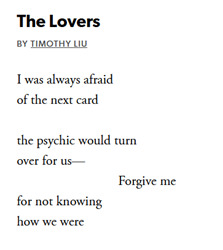























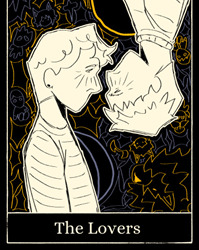


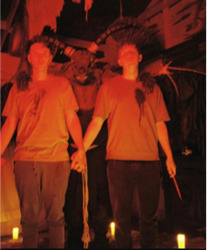
sources:
instagram post, @/silvija // "the lovers," timothy liu
"standing on my knees," john olive
"anthem," leonard cohen
jaime sabines, tr. from the spanish by guillermo del toro
"the castle," franz kafka and edit by @promqueendyke // "obrazXY42," zdislaw bekzinski
"sunrise," louise gluck
"hey believers," peter bradley adams
"how cruel of the universe," @8-bitfiction // "all this and heaven too," florence and the machine
"report to greco," nikos kazantakis // "peter grimes," benjamin britten
"love is war," american young
review of babel by r. f. kuang, alix e. harrow
"wait, is phil the skeleton? that's fucked up," part one, @2018hiatus
attributed last words, franz kafka
"o'death," frances molina
youtube community post, daniel howell // "in the fog," hermann hesse tr. scott horton
"the tragedy of hamlet, prince of denmark," william shakespeare
"wait, is phil the skeleton? that's fucked up," part two, @2018hiatus
kait rokowski
"water," sharanyan mannivannan
"the devil," the dan and phil tarot deck, art by @macabremaxx // "the lovers, the dan and phil tarot deck, art by @freshbaked-bread
the creative tarot, jessa crispin
slime (2024), @caratbow // instagram post, @/silvija
#dan and phil crafts#craftweaving#web weaving#web weaving with red#enjoy!!! there will be a part two momentarily#phan#back on my dan and phil bullshit
134 notes
·
View notes
Text
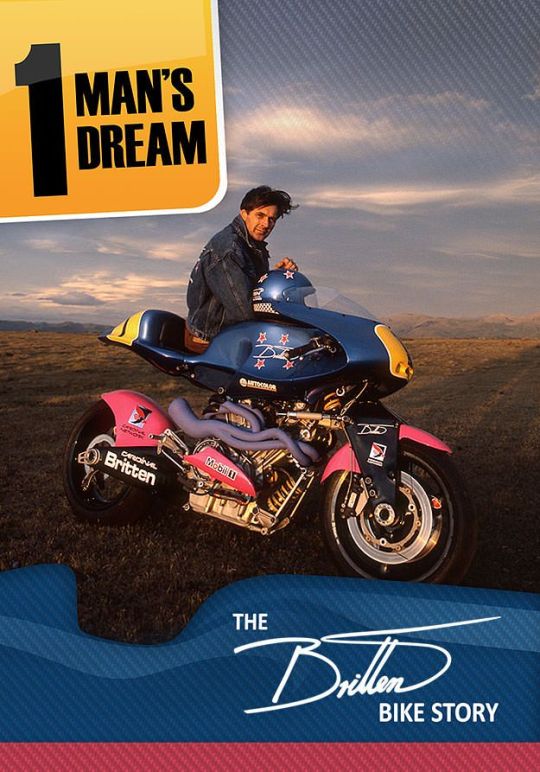
John Britten Britten V1000
#motorcycle#john britten#britten v1000#motolegends#sport bike#racing#motorsports#handcrafted#handbuilt#built for speed#ride hard or go home#moto love#lifestyle
40 notes
·
View notes
Text

John Piper record cover, his famous 'testicles' by Benjamin Britten.
23 notes
·
View notes
Text
[a wee character sketch interlude for the @calaisreno May Prompt Party]
(1) (2) (3) (4) (5) (6) (7) (8) (9) (10) (11) (12) (13) (14) (15) (16) (17) (18) (19) (20) (21) (22) (23) (24) (25) 26: manipulate (27) (28) (29) (30) (31)
-440-
Orchestras always tune to ‘A’ on the oboe, because every string instrument has an ‘A’ string. Oboes can play sharp or flat, just like any other instrument, but modernly every oboist uses a little electronic meter to ensure that their ‘A’ is exactly right.
As a child, his violin instructor had made him start every lesson by vocalising A4 out of thin air. Or, at least, attempting to do so; Sherlock has always had excellent intonation, but perfect pitch -- the ability to name the frequency of sounds one hears and vice versa -- is not on his resume.
So the exercise always felt fruitless, and aggravatingly so, because of course he never actually got the correct pitch. Close, and closer with time, but never close enough.
Years later, watching a tiny human named Rosamund drag herself to her feet just to fall back down time and time again, it finally occurs to him: That was the point.
-415-
Baroque: relating to or denoting a style of European architecture, music, and art of the 17th and 18th centuries that is characterised by ornate detail.
He finds himself in a tiny overcrowded music hall watching a small early music ensemble (3 violins, 1 viola, 1 cello, 1 contrabass, 1 recorder, 2 bassoons, 1 trumpet, 1 harpsichord, and 1 very murderous theorbo player) and it takes him far too long to realise why he's uncomfortable. Why there is a little twitch below his left eye.
They are actually using a historically accurate tuning.
Sherlock blinks, feeling around his jaw to see if it could be something else, but no, a part of his overly-trained brain rebels against all the sounds being pitched slightly lower than modern sensibilities. It's like a phantom toothache.
It's like before, when Sherlock would glance up from his microscope and observe John feeling poorly. In those days, Sherlock had nothing to offer, really, so he'd just had to let John's unhappiness bury itself under his skin as something else to ignore.
Now, though. Now he can do something about it.
-432-
Some theorists and musicians claim that the 432 Hz tuning has better effects on the human body, but there are no scientific studies that support the hypothesis.
He brings an exhausted John a late night (and therefor unattractively decaf) cup of tea. 'What happened?' he asks quietly, settling in across from him.
John shakes his head vaguely. 'I couldn't… I couldn't convince a mother to respect her child's pronouns.' He coughs. 'I am an old man who is shit at not stumbling over such things, but… She wouldn't even try.'
He meets Sherlock's eyes over the rim of his mug. 'Please remind me of this when Rosie is a teenager and I want to throttle her for reinventing herself every two days.'
Sherlock pauses, then sets his tea down and leans in until he can palm the soft pyjama fabric covering John's knee. It's a small gesture, but it works-- the creases in John's brow lose a little of their severity. 'I have no doubt she'll try our patience and sanity severely. But, John… You are already a far better parent than yours were.'
John stares at him and breathes out heavily. 'Fuck.' His free hand comes down on top of Sherlock's, absently palpating his knuckles one by one. 'But you can't-- There's not exactly scientific evidence, is there, to support that.'
Sherlock clears his throat. 'Yes, well. I'm confident there will be.'
John's lips twitch. 'Sherlock Holmes, are you saying you have faith in something?'
Sherlock tuts, then decides he doesn't care about propriety in this moment. He moves until he's kneeling before John, holding his face in his hands and focusing on the tiny freckle under John's left eyebrow, knowing John will understand.
'Yes,' he says simply. 'Just one thing.' And then he leans in.
[❤️]
[music to which this was written: Britten's Violin Concerto, Op 15, which I'm certain Sherlock would hate, but he's wrong]
31 notes
·
View notes
Text
a short list of historical figures who were queer: because I need people to understand that queer people have always been here.
with sources, because I am, after all, a historian.
Most of these figures are musicans, it is because I am studying to be a historical musicologist (basically a music historian).
Leonard Berenstein– (1918-1990) Composer, conductor, musician. Known for his musical West Side Story. Most likely a gay man, perhaps bisexual. While there are plenty of letters and first hand confirmations that exist, this Guardian article conveys the information well enough.
Pytor Illich Tchaikovsky– (1840-1892) Russian composer, best known for his ballets: Swan Lake, and the Nutcracker, as well as his 1812 Overture, which features canon fire (and has become a meme on Tumblr). A gay man, as confirmed by multiple historians that have dedicated their life to his research, and by me, who spent a few weeks translating letters that talk about his love for men and his fear of what that would do to his life. This article talks about John Wiley (a historian) had to say about it.
Benjamin Britten– (1913-1976) Known for his vocal compositions, if you are an english classically trained vocalist you know Britten's compositions. Known especially for his War Requiem and his opera Peter Grimes. He and fellow musician Peter Pears had a long lived relationship. This article speaks about it more.
Ethel Smyth– (1857-1944) A lifelong disrupter, demanded (rightly so) for people to listen to her music in a time where women were not given the space to compose. A lesbian who fought for the right for women to perform and be a part of orchestras and conductor her own works when women conducters were few and far between. This article, written by a woman, speaks on her life well.
Francis Poulenc– (1899-1963) A Parisian man with a marked love of mostly men, but did father one daughter and dedicated a few compositions to her mother. This article speaks well on his love.
Alan Turing– (1912-1954) A gay icon of mine, Turing was a British Mathmetician and codebreaker who you have to thank for your phone and for the earlier end of the second World War. This article speaks about his life, as well as the film Imitation Game (2014) discusses it to some extent.
Freddie Mercury–(1946-1991) The beloved lead singer of the band Queen was a notourious queer icon, who had many love affairs with men but did say that he loved one woman when he was younger, for this reason, I will not say whether he was bisexual or gay. But a queer icon nonetheless. This article discusses the topic.
David Bowie– (1947-2016) A performer I have always loved and dearly miss, who is known for his bisexuality and fantastic outfits. This Billboard article discusses his sexuality. But it is important to note, that he came out as gay first, and then bisexual, which does not mean he was changing his mind or wanting to conform, but instead was becoming more comfortable with his own sexuality as he aged, something that should be a more generally accepted thing.
Leonardo da Vinci– (1452-1519) While there are guesses about this mans sexuality, it is generally believed and agreed upon that he was at least queer. While more research must be done, this article speaks on the subject well enough.
There are plenty more that I could talk about and that I want to talk about but that would take so long.
The most important thing: Queer people have always been here, and they are amazing and beautiful and deserved so much better than what history gave them.
Please reply with more (and sources) if you have them.
#queer history#queer#historians will say they were close friends#history#i cried while working on this#because this means so much to me
52 notes
·
View notes
Text
Jeff Buckley; Obituary
June 7, 1997
Jeff Buckley, guitarist and songwriter, drowned on May 29 aged 30. He was born on August 1, 1966.
ALTHOUGH he was the son of Tim Buckley, one of the most influential American folk-rock singer-songwriters of the 1960s, Jeff Buckley was thought by many to have eclipsed his father's career with his 1995 debut album, Grace. A collection of unusual cover-versions (Leonard Cohen's Hallelujah , Benjamin Britten's Corpus Christi Carol ) and his own compositions, Grace was a showcase for Jeff Buckley's astonishing vocal talents.
Once described as "a choirboy singing in a whorehouse", he could go from dirty-kneed, Kurt Cobain-style screaming to the purest top C in a breath; before embarking on a scat-jazz odyssey that would last ten minutes or more. Employing a mixture of folk, funk, grunge and jazz, Grace won Buckley the Rolling Stone Best New Artist Award in 1995.
On May 29, while working on the follow-up album in Memphis, Tennessee, Buckley and a friend went to a marina on the Mississippi to relax. Buckley, fully clothed, waded into the river singing, and was swept away by the wake of a passing boat. His body was found a week later.
Jeff Buckley never knew his father - Tim was a lothario with a drug-habit that kept him restless. Although Tim released eight critically-acclaimed albums, his sales were always disappointing. He left Jeff's mother when Jeff was six-months-old, leaving her to support Jeff and his younger brother through a variety of dead-end jobs. They had a nomadic existence, moving from state to state; and the pressure of his mother's work left Jeff to bring up his younger brother on his own.
Although he dedicated the song Dream Brother to Buckley senior, Jeff was frequently disparaging of his absent father - claiming he inherited his musical talent from his mother. At one of his London concerts in 1995, a member of the audience kept shouting out Tim Buckley's name - Jeff responded by miming the inhalation of heroin and falling to the ground in convulsions, before "dying" by the drum-riser. Tim died of an overdose in 1975. He was 28.
As a result of such an unconventional upbringing, Jeff Buckley turned to music at an early age. He was a regular on the New York folk scene, playing to crowded bars in rough-and-ready half-hour slots. One of his trademarks was to begin singing soft and low, gradually raising the volume and pitch until the audience became totally silent and entranced.
His first, limited-edition live album, Live at the Sin-e , was released on the independent label Big Cat in 1994. Such was its critical success that Sony Records signed him up for his first proper release, the Grace album, within months.
Buckley was disparaging of his status and burgeoning "legend" - and often bemused by record companies waiting on him hand and foot. One of his favourite jokes was "How many Jeff Buckleys does it take to change a lightbulb?" "Oh, it's okay, Jeff, we'll do it for you, we know a guy in Brooklyn who's wonderful at changing lightbulbs. He'll do it for a couple of points (royalties) on your album."
Although the Rolling Stone award raised his profile in the US, it was in Britain and Ireland that Buckley's career was based. His audience was diverse - from fortysomethings checking out Tim Buckley's son, to more avant-garde teenage girls, impressed by his cheekbones and haunted eyes. John McEnroe and Chrissie Hynde were regulars at his concerts - Hynde and McEnroe once spending an evening jamming with him after a particularly triumphant London appearance.
Songs such as Last Goodbye - a shivering blend of folk, blues and Buckley's scatting, ululating voice; and the dolorous, harmonium-led Lover, You Should Have Come Over - had marked Buckley out as a new Van Morrison, someone with limitless talent and range.
His last British appearance, at the 1995 Glastonbury Festival, was a chance to premiere new material, post- Grace. Songs such as the astonishing What Will You Say When You See My Face - built around Eastern chord-structures and endless, despairing blues arpeggios - confirmed that Buckley was on an artistic roll that might have resulted in dozens of treasured albums.
8 notes
·
View notes